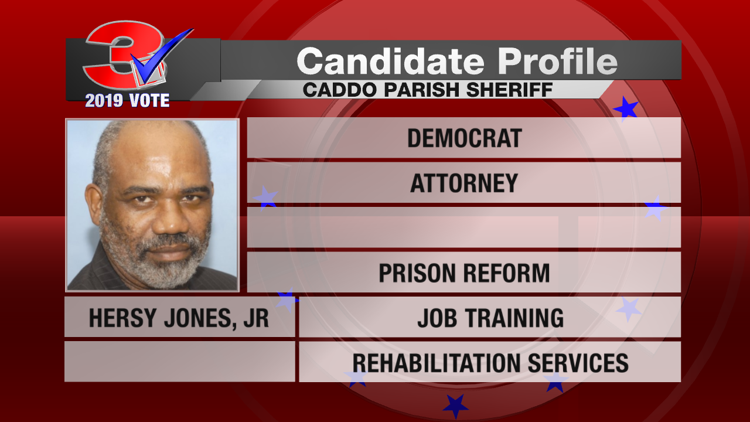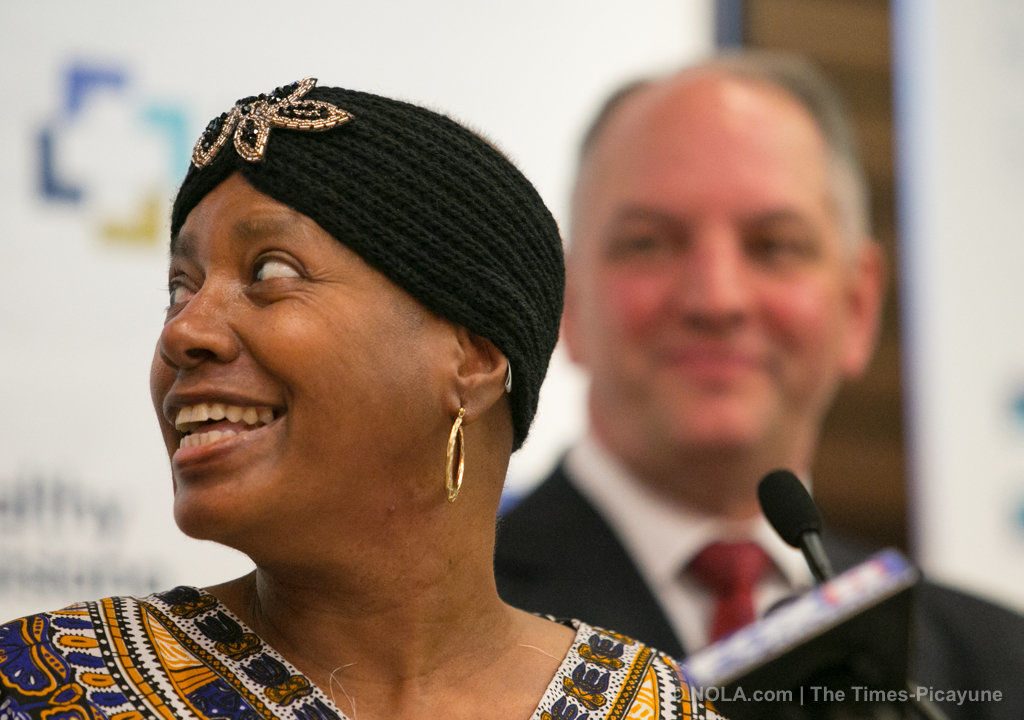In 2015, when Regina Barrow ran for the state senate post left vacant by Mayor-President Sharon Weston Broome, she won an endorsement from an African American-focused online publication called the Rouge Collection, run by the well-known activist Gary Chambers.
But as she runs for reelection this year, Barrow won’t be getting the endorsement from the Rouge Collection. Chambers, a 34-year-old who has ascended from a little-known entrepreneur to a prominent — and provocative — voice on issues like criminal justice, is challenging Barrow, 53, for the seat. Both candidates are Democratic.
Barrow, now at the end of her first term in the state Senate, is seeking to return to the statehouse for her 15th consecutive year. A longtime ally of Broome, she is touting accomplishments like expanding foster care services and bringing state dollars back to Senate District 15, which encompasses a wide swath of north Baton Rouge, from the Mississippi River to Sherwood Forest to the Baton Rouge Metropolitan Airport.
Chambers is running on his own record of pushing local officials into action, through his publication and a brash, often confrontational style. He says people weren’t talking about north Baton Rouge five years ago, before the Rouge Collection began highlighting the city’s inequity.
“If you are wrong and you’re not defending the community, I’m going to use my platform and position to make sure you don’t stay there,” Chambers said in an interview. “Those are not things that are happening from our elected officials because we play nice. And we don’t want to offend people. And as a result our community is lost.”
Barrow, who has the backing of the parish Democratic party’s executive committee, served as a legislative aide to Broome before following her footsteps to the Louisiana House and then state Senate. She has a long list of items she touts as accomplishments, from expanding public services to playing a role in landing a long-sought emergency room for the region. She has positioned herself as a pragmatic lawmaker who has landed funding for the Baton Rouge North Economic Development District, an entity she points to as proof the region’s economic comeback is real.
Chambers, a commissioner of that economic development district, is claiming credit for pushing leaders to land funding for the initiative, to Barrow’s chagrin. While advocacy can help spur action, Barrow insisted “you have to engage, work with people and bring things to pass.”
“I’m really floored. Because you can advocate and there’s nothing wrong with advocacy,” Barrow said. “But you have to be at the table.”
This past legislative session, Barrow passed high-profile legislation that extended foster care services to young adults up to age 21, an effort to help youth who in the past have aged out of the system at 18. The bill was part of the governor’s legislative agenda.
She pointed to a bill she passed last year that created a council focused on addressing poverty. If elected, she said she will continue to expand on things she has already accomplished, like closing gaps in government services.
Barrow said she has long pointed out north Baton Rouge’s lack of amenities, compared to other parts of town, and she wants to “change the narrative” for businesses who think they can’t make money in the region.
“There are a lot of great people who live in north Baton Rouge,” she said. “Unfortunately, they don’t have the amenities the other side of town has. That’s something I’ve been talking about and preaching since I’ve been here.”
She called the lack of a grocery store in the area surrounding Southern University a “disgrace,” especially when considering the amenities at LSU’s campus. A member of the powerful Senate Finance Committee, she pointed to recent funding she landed for the airport, parks and other areas, and said she plans to advocate for state dollars for the Baton Rouge Zoo in the coming term.
Barrow said she hopes to take a stronger aim at aiding people in poverty if re-elected, in part by bringing together agencies like the Department of Children and Family Services and the Louisiana Department of Health.
Chambers has earned a reputation as a political firebrand, and readily admits he’s been kicked out of his fair share of Metro Council meetings. At one, in 2016, then-Mayor Pro Tem Chandler Loupe said Chambers was being disruptive, and as Chambers was escorted out by law enforcement, he called Loupe and others “disrespectful white boys.”
But he said his confrontational style hasn’t precluded him from working with people with whom he disagrees; Loupe, a Republican, served on the host committee of an early fundraiser for Chambers’s Senate run this spring, along with Ryan Heck, a former Republican councilman. Neither returned messages seeking comment.
Chambers’ Rouge Collection, now a “pro-black” publication that solely publishes online, saw its profile raised amid a national debate over race and policing after several high-profile shootings, culminating locally with the police shooting of Alton Sterling. He also led protests at council meetings and held town halls.
Still, Chambers admits advocacy has its limits. In 2016, when Gov. John Bel Edwards and Barrow announced Our Lady of the Lake Regional Medical Center would open a much-needed emergency room in north Baton Rouge, Chambers, and his ally, the similarly outspoken Metro Councilwoman Chauna Banks, saw their preferred pick, Champion Medical Center, passed over, rankling the duo. Champion, which was later revealed to have ties to an indicted Dallas health executive accused of a kickback scheme, closed the following year.
“People who have been on the streets protesting and also been in community meetings, you realize how important it is who sits at those tables making those decisions,” Chambers said. “And if you’re sincerely committed to this work, at some point you say, ‘put me in.’ Because there’s only so much you can do from outside.”
Albert Samuels, a political science professor at Southern University, said Chambers faces a tough road unseating Barrow, who by most indications is popular and without major missteps. But he added Chambers’ profile will undoubtedly be raised through running, and he could be set up for a future run for another office if he is unsuccessful in the Senate race.
Chambers is running on a what he called a “HEAL” platform of health care access, economic development, academic achievement and legislative justice. He is a proponent of legalizing marijuana for adult recreational use, and expunging records of people charged with marijuana offenses. He is also a proponent of abortion rights, and said he would convene a wide range of pastors, officials and the public in the district to create a “people’s bill” before each session.
While Chambers concedes he’s raised little money in the race, he said he has a “huge platform,” and knows how to use it.
“Money is not going to determine this race,” he said. “Change will.”




